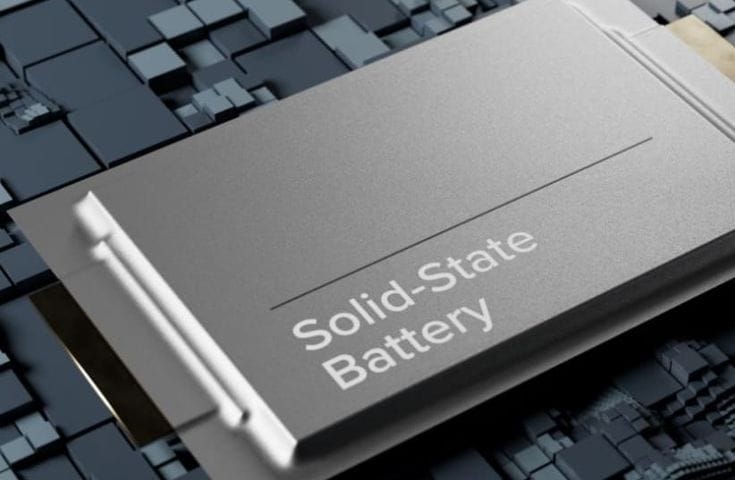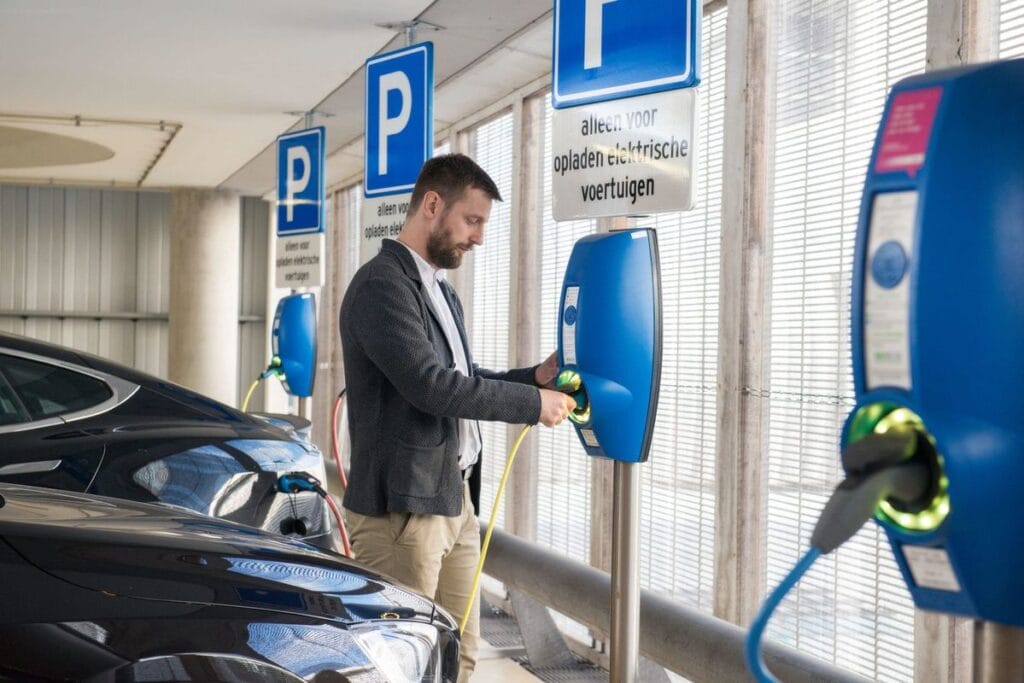Imagine an electric vehicle that charges in minutes, runs up to 750 miles, and lasts longer than any current model—no, it’s not science fiction, it’s Toyota solid-state battery revolution. As a global automaker with a deep legacy in hybrid and EV innovation, Toyota is now leading the charge toward the future of battery tech. With solid electrolytes, lithium-metal anodes, and higher energy density, their solid-state battery technology could redefine the way we think about mobility. From slashing charging time to reducing fire risks, this breakthrough isn’t just an upgrade. It’s a leap into the next era of electric cars.
Toyota’s Breakthrough in Solid-State Battery Technology
Toyota has taken a bold step toward the future of EV technology with its groundbreaking focus on solid-state batteries. In an industry still dependent on lithium-ion batteries, this marks a game-changing breakthrough in battery tech. The Japanese automaker has positioned itself as a pioneer in solid-state battery production, aiming to lead the global race for next-generation battery electric vehicles (BEVs). With claims of faster charging time, increased energy density, and longer battery performance, Toyota’s solid-state battery efforts are reshaping the future of the electric vehicle market.
Why Solid-State Batteries Could Revolutionize EVs
Unlike conventional lithium-ion cells, solid-state batteries use a solid electrolyte, which enhances both safety and efficiency. These solid materials reduce fire risk and allow higher voltages, translating into greater miles per charge. Toyota announced that its solid-state EV could offer up to 750 miles on a single charge—an achievement that directly tackles range anxiety. In short, solid-state batteries could radically change how we perceive and use EVs.
Did you know Toyota’s solid-state EV aims to travel750 miles on a single charge?
Key Differences Between Solid-State and Lithium-Ion Batteries
While lithium-ion batteries rely on liquid electrolytes, solid-state cells replace them with a solid medium, usually made of ceramic or polymer. This shift eliminates leakage risks and allows for thinner, more compact battery packs. Additionally, lithium metal anodes in all-solid-state designs boost battery performance and enable faster recharge cycles. This architecture makes solid-state batteries not just safer, but also more durable than traditional lithium-ion systems.
How Toyota’s Battery Tech Stands Out in 2026
By 2026, Toyota plans to start mass production of its solid-state EV batteries, aiming for vehicles that combine safety, power, and extended range. Unlike rivals such as Tesla or Hyundai, Toyota’s strategy emphasizes proprietary battery development and vertical integration. The company’s innovation goes beyond just producing batteries—it’s about rethinking the entire battery supply chain and pushing the limits of battery technologies.
Inside Solid-State Battery Production

To understand the complexity behind solid-state battery production, one must look at the precise science and engineering involved. Producing a new solid-state battery requires more than just swapping out components—it involves developing stable solid electrolytes, reliable anode materials, and temperature-resistant cells. The manufacturing process also affects scalability and battery performance across various electric cars.
Did you know solid-state batteries replace flammableliquid electrolytes with solid materials for better safety?
What Makes Solid-State Battery Production So Complex
Unlike traditional lithium-ion processes, making solid state batteries involves handling sensitive materials that are hard to manufacture and scale. Ensuring uniform distribution of solid electrolyte in each cell is difficult and costly. Moreover, aligning multiple layers of cathode, anode, and electrolyte requires precise engineering to avoid performance degradation and maintain battery life.
Materials Used in Solid-State Battery Development
The development of solid-state batteries depends on high-quality ceramics, polymers, and stable lithium compounds. Toyota’s researchers are experimenting with sulfide-based electrolytes, lithium-metal anodes, and hybrid materials that improve energy density. This deep focus on material science is a crucial factor in making solid-state battery production both scalable and sustainable.
Read about Pixel Photo Unblur
The Role of the Electrolyte in All-Solid-State Cells
The electrolyte plays a central role in battery tech, acting as the conductor between the anode and cathode. In solid-state batteries, replacing liquid electrolytes with a solid form reduces the risk of thermal runaway and enables tighter battery packaging. Toyota is investing in solid electrolyte innovation to create all-solid-state systems with better thermal stability and performance under extreme conditions.
Impact on the EV Market and Performance
The adoption of solid-state batteries is set to transform the EV market by addressing key limitations of current EV batteries. Enhanced safety, higher energy density, and shorter charging times make these batteries ideal for the next wave of electric vehicles. Toyota, with its aggressive timeline, could be the first automaker to offer EVs powered by solid-state batteries.
Did you know Toyota could be the first major automaker to mass-produce all-solid-state batteries by 2027?
How Solid-State Batteries Improve EV Battery Performance
These batteries offer enhanced battery performance, lasting longer and charging faster than conventional lithium-ion systems. A solid electrolyte boosts cycle stability and power output, improving acceleration and reducing wear. Toyota’s new designs aim for minutes or less recharge time, solving a major pain point in the EV industry.
Why EVs with Solid-State Batteries Will Outperform Current Models
EVs using solid-state batteries will surpass current models in safety, range, and longevity. Compared to hybrid and standard lithium-ion cars, they offer better battery life and lower degradation. Toyota could lead this shift by integrating these cells into both hybrid and battery electric vehicles across its fleet.
Battery Lifespan and Efficiency Compared to Lithium-Ion
Thanks to better thermal management and material durability, solid-state batteries offer longer battery lifespan and greater efficiency than their lithium-ion counterparts. This not only improves the driving range, but also lowers maintenance costs over time. For example, early toyota’s solid-state prototypes promise over 621 miles per charge with minimal loss in performance.
Learn also about What is information technology?
Looking Ahead: Toyota’s Vision for the Future

With 2025, 2026, and 2027 on the horizon, Toyota’s vision focuses on full-scale solid-state battery production and expanding its influence in the EV space. Collaborating with firms like Factorial Energy, and competing with CATL and Tesla, Toyota aims to define the future of battery tech.
Toyota’s Roadmap for Solid-State Battery Production
Toyota’s roadmap includes pilot plants, early battery company partnerships, and large-scale testing of solid-state technology. By 2027 and 2028, Toyota plans to include solid-state batteries in commercial EVs, starting with high-end models and expanding to broader markets.
What to Expect in EV Battery Tech by 2026
By 2026, expect a new generation of EV batteries with better battery performance, faster charging time, and reduced costs. With more automakers entering the solid-state race, the entire automotive landscape will shift. Toyota, leading the charge, could spark an industry-wide transformation.
How This Breakthrough Could Shape the Future of Electric Vehicles
This breakthrough in battery development marks a pivotal moment for the electric vehicle industry. With scalable solid-state battery solutions, Toyota is not just improving cars—it’s shaping the future of global EV technology and bringing truly revolutionary battery technologies to roads worldwide.
Frequently Asked Questions about Toyota solid-state battery
What is Toyota’s new solid-state battery technology?
Toyota’s solid-state battery technology uses state batteries with solid electrolytes and lithium-metal anodes, offering faster charging, longer range, and enhanced safety. This breakthrough promises better battery performance than semi-solid-state battery alternatives and could enter mass production by 2027.
Does Toyota have a solid-state battery?
Yes, Toyota is developing and testing solid-state batteries, including all-solid-state prototypes. While not yet in commercial EVs, Toyota could be the first major automaker to mass-produce them within a few years.
What is the problem with solid-state batteries?
The main issue with solid-state batteries lies in their complex battery production, especially scaling solid electrolyte materials and maintaining long-term cell stability. These challenges delay affordable manufacturing for most electric vehicles.
So, are you ready for a future powered by solid-state batteries? With Toyota investing in scalable battery production and targeting full rollouts by 2027, this transformation is closer than ever. Whether you’re a tech enthusiast, a driver seeking longer range, or just curious about the next big thing in the automotive world, it’s time to keep your eyes on the road ahead. What excites you most. Fast charging, better battery life, or the promise of a safer EV? Let’s talk about it.
Read also about Car Catalytic Converter